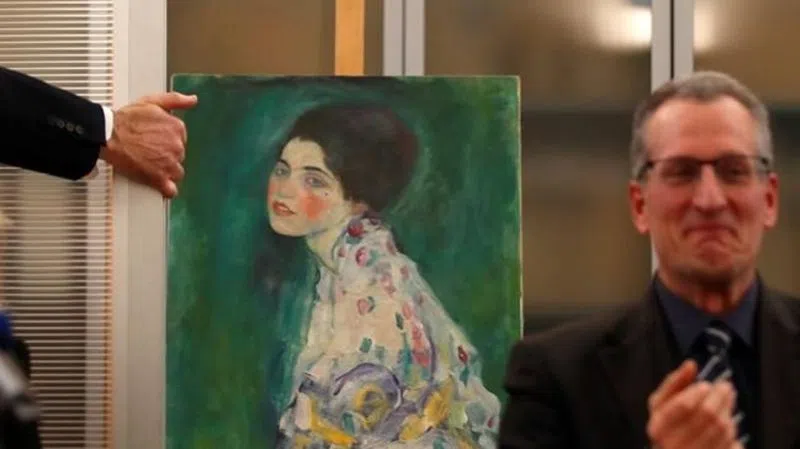
Portrait found in gallery’s walls verified as missing Klimt
PIACENZA, Italy — Art experts have confirmed that a painting discovered hidden inside an Italian art gallery’s walls last month is Gustav Klimt’s “Portrait of a Lady,” which was stolen from the gallery nearly 23 years ago.
The authentication of the painting announced Friday solved one of the art world’s enduring mysteries – where did the missing work end up? – but left several questions unanswered, including who had taken it and whether it ever left the museum’s property.
A gardener at the Ricci Oddi Modern Art Gallery in the northern city of Piacenza who was clearing away ivy noticed a small panel door on a wall outside and opened it. Inside the space, he found a plastic bag containing a painting that appeared to be the missing masterpiece.
“It’s with no small emotion that I can tell you the work is authentic,” Piacenza Prosecutor Ornella Chicca told reporters Friday while two police officers stood on either side of an easel bearing the recovered painting.
